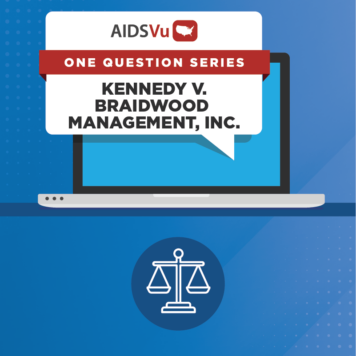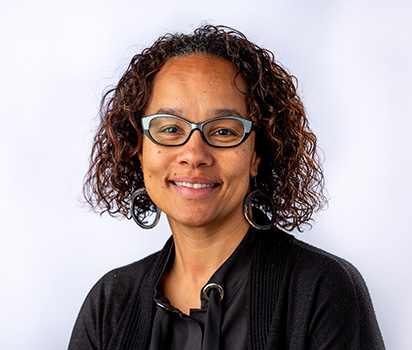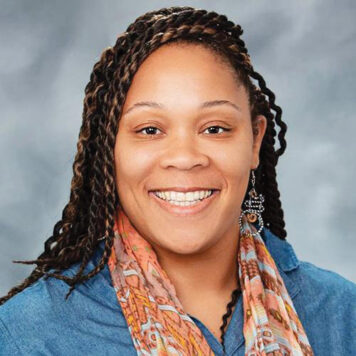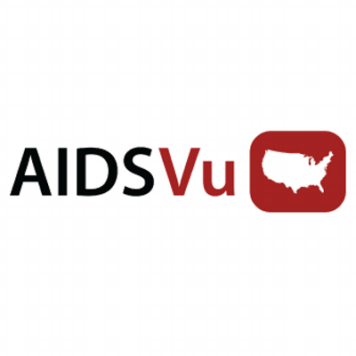Sheldon D. Fields, Ph.D., RN, FNP-BC, AACRN, FAANP, FNAP, FAAN, is Dean and Professor of the School of Health Professions at New York Institute of Technology (NYIT).
Q: You have been researching HIV treatment and prevention among Black men for decades. What motivated you to get involved in this work?
Honestly, I started this work reluctantly. By the time I began my doctoral program in Nursing Science, it had become personal. At that point, I had a few friends who were diagnosed with HIV, and two of my friends had died from AIDS. It was one of the moments where you have to either figure out how to help or watch from the sidelines as it continues to happen. I had been working as a Nurse Practitioner and had started to treat people with HIV, and then I decided to combine my clinical experience with my growing interest in research. I wound up at the University of Pennsylvania, where I was mentored by one of the foremost researchers in HIV prevention with a focus on communities of color, Dr. Loretta Sweet-Jemmott and her husband, Dr. John Jemmott. These two mentors really shaped my career in HIV prevention research.
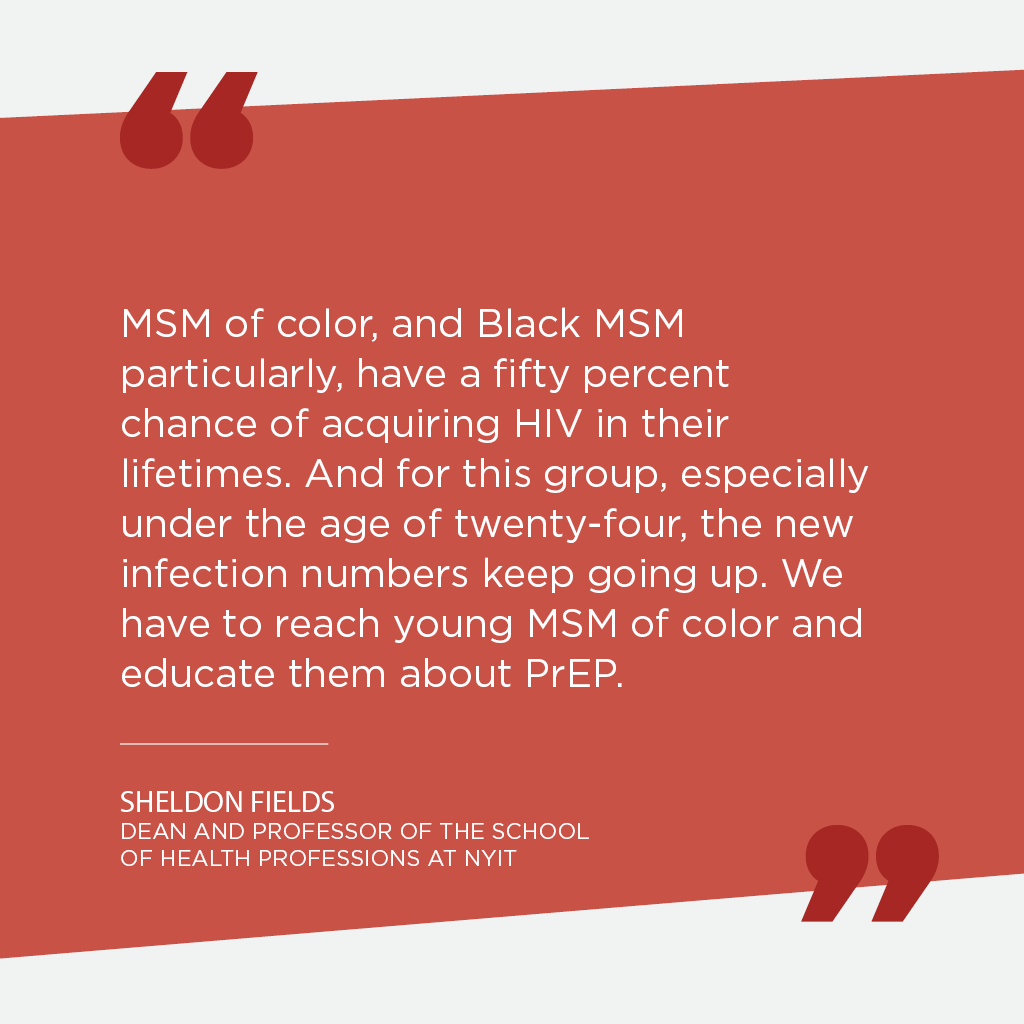 Q: AIDSVu released PrEP use data earlier this year showing a 73 percent increase year over year in persons using PrEP across the U.S. from 2012 to 2016. Given your extensive research into PrEP uptake and adherence, what needs to be done to increase PrEP uptake among the populations who need it most?
Q: AIDSVu released PrEP use data earlier this year showing a 73 percent increase year over year in persons using PrEP across the U.S. from 2012 to 2016. Given your extensive research into PrEP uptake and adherence, what needs to be done to increase PrEP uptake among the populations who need it most?
This issue of groups not getting PrEP that need it most is the reason we pushed for the HIV Prevention Trials Network (HPTN) to do a specific PrEP study on Black Men who have Sex with Men (MSM), the subgroup most impacted by the HIV epidemic. The “iPrEx trials,” the first study that measured the efficacy of PrEP, gave us a proof of concept that PrEP would work in MSM generally. However, if you look at who was enrolled in the study, there were not enough Black MSM enrolled in the trial domestically to provide definitive proof. The HIV Prevention Trials Network (HPTN) Black Caucus, myself, Dr. Darrell Wheeler (Iona College), Dr. Leo Wilton (Binghamton University), and Dr. LaRon Nelson (University of Rochester) all realized that in order to answer vital questions about PrEP initiation, uptake, and sustainability especially among Black MSM, we needed a study that specifically focused on that population. In our study, Pre-Exposure Prophylaxis (PrEP) Initiation and Adherence among Black Men who have Sex with Men (BMSM) in Three U.S. Cities, we were able to demonstrate that Black MSM would take and adhere to PrEP once properly educated about it.
MSM of color, and Black MSM particularly, have a fifty percent chance of acquiring HIV in their lifetimes. And for this group, especially under the age of twenty-four, the new infection numbers keep going up. We have to reach young MSM of color and educate them about PrEP. The study specifically included a large number of men under twenty-four because we needed to know if the proposed strategies would work for them. We knew that just giving the men a pill and saying “Here, take your medication,” was never going to be enough and would be missing the complexities of these men’s lives. The study implemented a technique called C4 or “client-centered care coordination.” Participants were asked questions about what was going on in their lives. They were engaged in conversations about the medication, instead of just being told to take it. We were able to get excellent qualitative data by engaging in that conversation. The retention rate in the study was well over ninety percent, and the uptake rate was significant as well. We have to merge the advances in medicine, like PrEP, with the need for behaviorally and culturally appropriate support systems that can reach these high-risk populations.
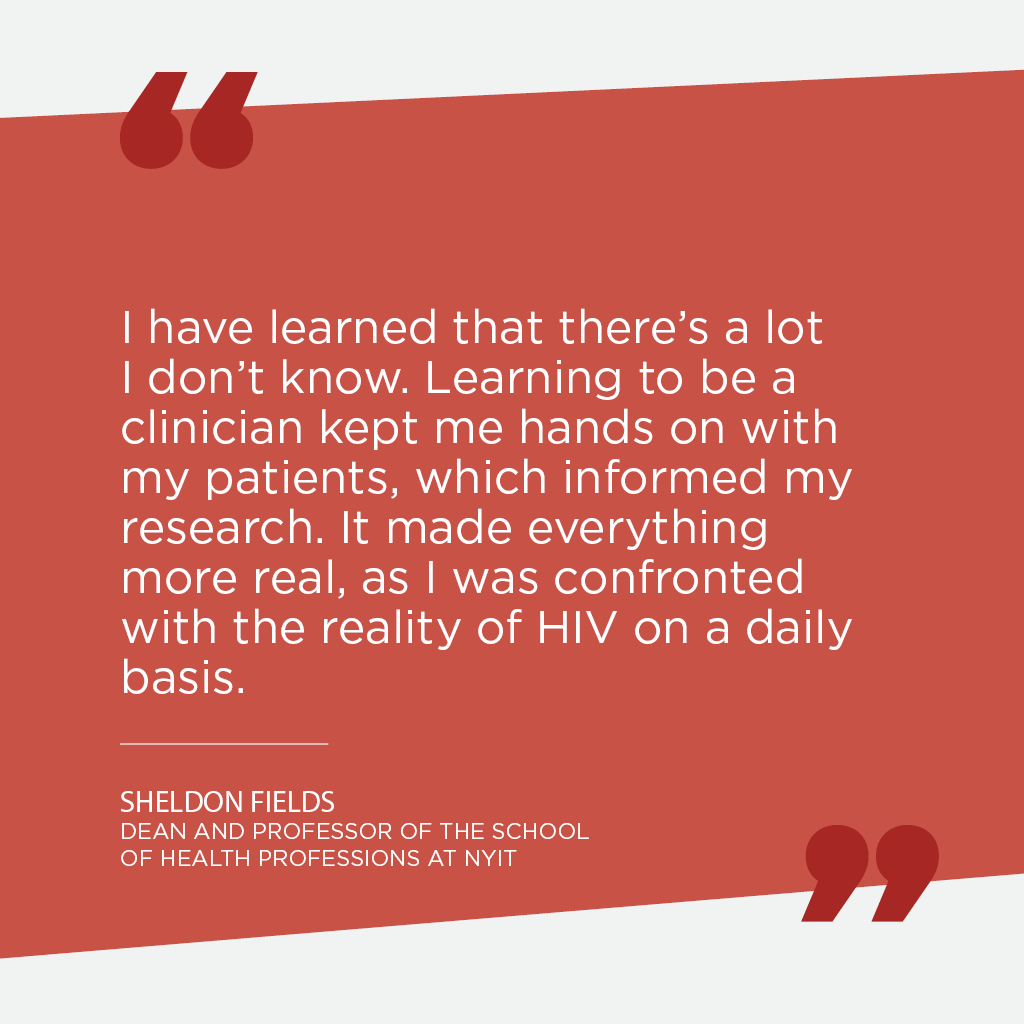 Q: Your career has spanned HIV research, medical practice as a nurse, and political work with Senator Barber Mikulski on the Senate Committee on Health, Education, Labor, and Pensions. What have you learned working at the intersections of policy, medicine, and public health?
Q: Your career has spanned HIV research, medical practice as a nurse, and political work with Senator Barber Mikulski on the Senate Committee on Health, Education, Labor, and Pensions. What have you learned working at the intersections of policy, medicine, and public health?
I have learned that there’s a lot I don’t know. Learning to be a clinician kept me hands on with my patients, which informed my research. It made everything more real, as I was confronted with the reality of HIV on a daily basis.
My foray into health policy also came about because of my clinical interactions with my patients. I had a patient whose HIV was relatively under control and whose treatment was covered by insurance. However, she needed elective surgery for another health issue, and in the State of New York at that time, the Managed Medicaid program that gave her excellent coverage for her HIV medical needs would not give her appropriate coverage for this surgery. It dawned on me that this was a policy issue. I did not know enough about health policy at that point in my career, so I found the Robert Wood Johnson Health Policy Program, and I applied. I got to be present in D.C. for the run-up to the passage of the Affordable Care Act while working for Senator Barbara Mikulski from Maryland. At that point, I managed to marry my interest in policy with my clinical background and my research and teaching backgrounds and add in some advocacy. In D.C. I was able to see how all of these approaches can work together to be impactful.
Bringing all of those diverse backgrounds together is what helped us craft the argument for the Black MSM PrEP study. One study, the Injectable Cabotegravir study, must now enroll at least 50% Black MSM domestically. Bringing the policy issues and the medical issues together help ensure that we don’t have another study like iPrEx that under-enrolled Black MSM.
Q: How does your work in HIV inform your new role as Dean of the School of Health Professions at New York Institute of Technology (NYIT)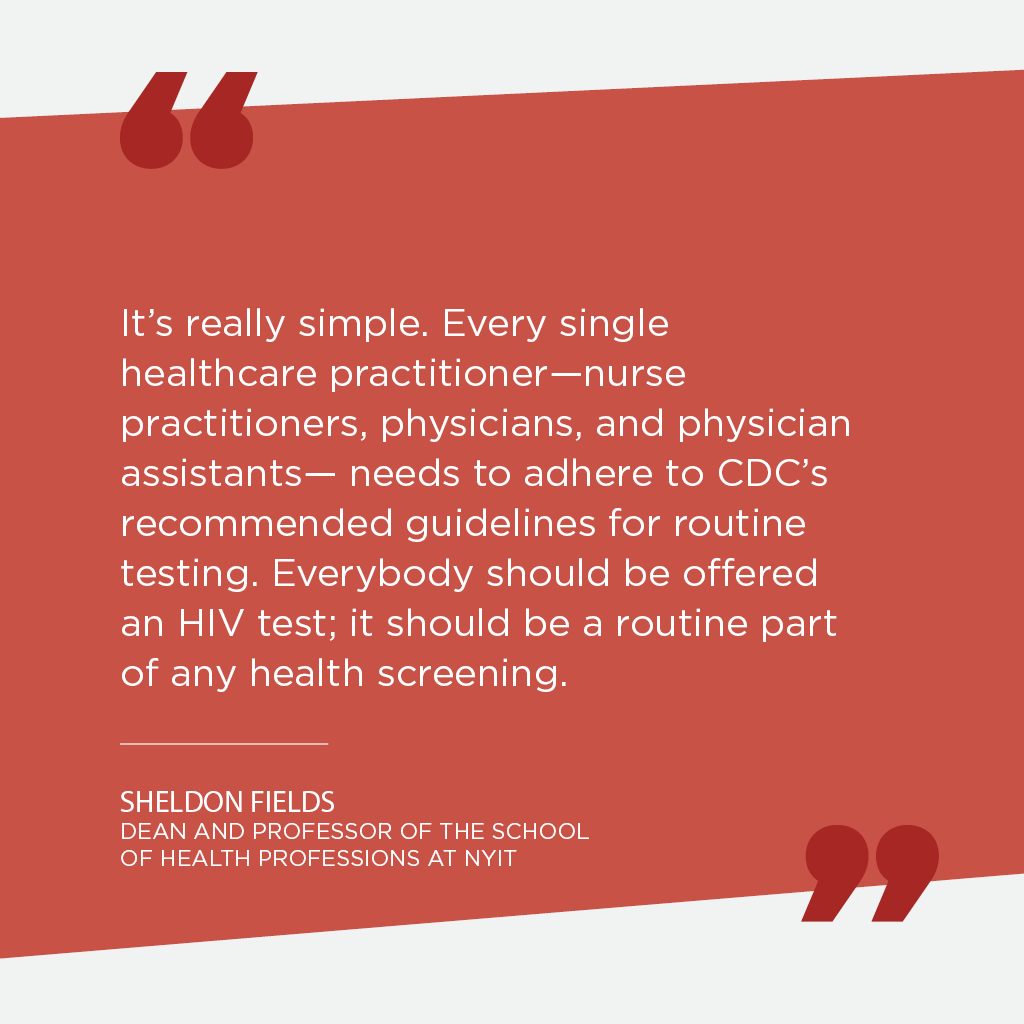 ?
?
There was a point in my career where I had to decide if I wanted to stay in D.C. and work at a governmental agency or return to the world of academia. When you want to influence policy, you have to have a seat at the decision-making tables. If you aren’t at the table, you are on the menu. I realized that I could effect change across multiple disciplines as an academic administrator. I purposefully chose to be a dean of the School of Health Professions because I wanted to be able to influence multiple health programs. The future of healthcare is working interprofessionally and interdisciplinarily. Being a dean has given me a platform to elevate the significance of the work that I do as an HIV prevention researcher.
Q: National HIV Testing Day was on June 27. What needs to be done to increase routine HIV screening across the U.S.?
It’s really simple. Every single healthcare practitioner—nurse practitioners, physicians, and physician assistants— needs to adhere to CDC’s recommended guidelines for routine testing. Everybody should be offered an HIV test; it should be a routine part of any health screening. If we did that and normalized testing the way we have normalized getting your cholesterol and blood sugar checked, then we could solve that initial step by getting everybody tested. For some reason, we have not been able to implement that, and I put that onus on my colleagues as healthcare practitioners. Why are you not testing your patients?
For those who test negative, we now have medications to help them remain negative. For those who test positive, we have very effective treatments. The only caveat I have with the CDC policy is that they only recommend testing to age sixty-five, which I think is hilarious because people are living much longer now. People over the age of sixty-five continue to be at risk and to have sex.

